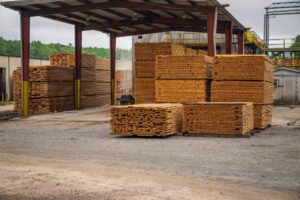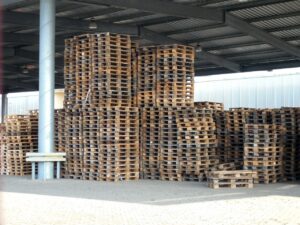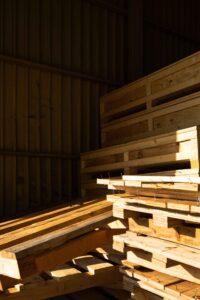As consumers become more conscious of their environmental impact, the choice between bamboo and cotton fabrics is a hot topic. Both are popular natural fibers, but which is more sustainable? This blog delves into the pros, cons, FAQs, and tips for choosing between bamboo and cotton, with a focus on environmental impact, comfort, and practicality.
What Are Bamboo and Cotton Fabrics?
- Bamboo Fabric: Made from bamboo pulp, this fabric is often marketed as eco-friendly, soft, and moisture-wicking. However, the production process varies, affecting its environmental footprint.
- Cotton Fabric: A time-tested natural fiber, cotton is widely used for its comfort, breathability, and versatility. Organic and conventional cotton have distinct impacts on the environment.
Pros and Cons of Bamboo Fabric
Pros:
- Eco-Friendly Potential: Bamboo grows quickly and requires no pesticides or fertilizers.
- Moisture-Wicking: Keeps you dry by absorbing and evaporating sweat efficiently.
- Softness: Often compared to silk, bamboo fabric is smooth and comfortable on the skin.
- Antimicrobial Properties: Naturally resistant to bacteria and odors.
- Hypoallergenic: Ideal for sensitive skin.
Cons:
- Chemical Processing: Most bamboo fabrics are made using a viscose process, which involves harmful chemicals.
- Cost: Typically more expensive than conventional cotton.
- Durability: Less durable compared to high-quality cotton fabrics.
- Sustainability Claims: Some bamboo fabrics’ eco-friendliness is overstated due to processing methods.
Pros and Cons of Cotton Fabric
Pros:
- Breathability: Excellent for warm weather as it allows air to circulate.
- Durability: High-quality cotton lasts for years, especially when cared for properly.
- Widely Available: Cotton is accessible in a range of styles and price points.
- Biodegradability: Natural cotton decomposes easily when untreated.
- Organic Options: Organic cotton reduces the use of harmful chemicals.
Cons:
- Water-Intensive Cultivation: Conventional cotton requires significant water resources.
- Pesticide Use: Non-organic cotton relies heavily on pesticides, harming ecosystems.
- Shrinking and Wrinkling: Cotton fabrics often require special care to maintain shape.
- Labor Practices: Conventional cotton production is sometimes associated with unethical labor practices.
Environmental Impact: Bamboo vs. Cotton
Farming:
- Bamboo: Minimal water and no pesticides required; grows quickly.
- Cotton: High water consumption and pesticide use for non-organic crops.
Production:
- Bamboo: Chemical-heavy viscose production negates much of its eco-friendly potential.
- Cotton: Organic cotton production is sustainable but conventional methods are resource-intensive.
End-of-Life:
- Bamboo: Fully biodegradable under the right conditions.
- Cotton: Also biodegradable, but synthetic blends can reduce this advantage.
FAQs
1. Is bamboo fabric better for sensitive skin than cotton?
- Yes, bamboo’s hypoallergenic and antimicrobial properties make it a great option for sensitive skin.
2. Does bamboo fabric shrink like cotton?
- Bamboo is less prone to shrinking than cotton but may still shrink if washed in hot water.
3. Which is more durable: bamboo or cotton?
- Cotton is generally more durable, especially organic or high-quality cotton.
4. Are all bamboo fabrics sustainable?
- Not necessarily. The viscose production process involves chemicals, making some bamboo fabrics less eco-friendly.
5. Is organic cotton worth the cost?
- Yes, for those prioritizing sustainability and avoiding harmful chemicals, organic cotton is a better choice.
Tips for Choosing Between Bamboo and Cotton
- Check Certifications: Look for certifications like GOTS (Global Organic Textile Standard) for cotton and Oeko-Tex for bamboo.
- Understand the Process: Opt for lyocell bamboo (mechanically processed) over viscose bamboo for an eco-friendlier choice.
- Consider Usage: For sportswear, bamboo’s moisture-wicking properties are ideal. For everyday wear, cotton’s durability may be better.
- Evaluate Budget: Bamboo is often pricier, so weigh its benefits against your budget.
- Support Ethical Brands: Choose brands committed to sustainable and ethical practices.
People also search for
- Bamboo vs cotton sustainability
- Benefits of bamboo fabric
- Organic cotton vs bamboo fabric
- Eco-friendly clothing materials
- Bamboo fabric pros and cons
- Sustainable fashion fabrics
- Natural fibers comparison






